8 May 2025 | Europe and Central Asia, News and features, Turkey
The alarming escalation in the persecution of Turkey’s media workers is part of a calculated strategy. With the detention of Istanbul’s democratically elected mayor Ekrem İmamoğlu on 19 March, the Turkish government has sent a chilling message to the public: nobody is safe, anyone can be arrested, so everybody should take caution.
Journalists make up a significant sum among the more than 1,879 detained in last month’s protests, 260 of whom were formally arrested. A further 382 people were reportedly arrested in Istanbul last week for “non-authorised demonstrations”.
Photographers, reporters, videographers, YouTubers, and social media commentators have been detained. Many have been taken into custody following dawn raids. Wearing visible press badges hasn’t helped reporters and videographers who filmed scenes of clashes outside the İstanbul Metropolitan Municipality building in Saraçhane, where the opposition party, the Republican People’s Party (CHP), had organised week-long protest rallies. Covering the events became a crime as government officials warned that TV networks that gave airtime to these events would be shut down.
This was not an empty threat. On 24 March, 11 journalists were arrested in one day, including Yasin Akgül of the French news agency Agence France-Presse (AFP) and Bülent Kılıç, a World Press Photo award winner and one of Turkey’s most accomplished photographers. BBC’s long-time Istanbul correspondent, Mark Lowen, was taken from his hotel in Istanbul on 26 March, held for 17 hours, and expelled from the country where he had lived for five years.
Arbitrary releases have followed the arbitrary arrests. After being released, the AFP photographer Akgül and his colleagues were reportedly re-arrested the same day, before being re-released a few days later.
Turkey’s Information Technologies and Communication Authority (BTK) and Radio and Television Supreme Council (RTÜK) have used these arbitrary shock-and-awe tactics over the past weeks.
On the day of İmamoğlu’s detention, BTK imposed widespread restrictions on social media and messaging platforms in Istanbul, including YouTube, Instagram, X, and TikTok.
Because of the restrictions, neither locals nor tourists could use messaging apps like WhatsApp, Telegram, and Signal for days. The impact was significant, given that Istanbul has a population of more than 15 million residents, making it the most populous and wealthiest city in Turkey.
BTK achieved the digital shutdown through bandwidth throttling, which significantly slows down internet access. The global internet censorship watchdog NetBlocks confirmed the use of bandwidth throttling.
The government, meanwhile, neither accepted nor denied throttling the internet for more than 15 million citizens, adding an air of mystery to the technical operation. Imposing restrictions without any announcement or explanation is part of the same political strategy that placed İmamoğlu behind bars.
A few days later, RTÜK issued a 10-day broadcast suspension for the leading opposition network, Sözcü TV. The TV channel’s coverage of protests “incited hatred and enmity among the public”, according to RTÜK.
Officials from the board continue to threaten the opposition media by revoking their licences. This means they could be shut down for good if network editors don’t abide by the government’s rules.
“Let’s see what will happen tomorrow morning,” mused Fatih Portakal, the Sözcü TV anchor, during a news bulletin shortly following the announcement of the 10-day suspension. Portakal told viewers his channel would go dark and display RTÜK’s decision for ten days. Sözcü continued its YouTube broadcasts and is now back on air on cable television.
The Turkish government already controls 90% of the media. From TV channel CNN Turk to newspaper Hurriyet, once respected mainstream media brands now operate as government mouthpieces. The government’s biggest concern is the remaining pockets of free expression: media outlets such as Bianet, Agos, Açık Radyo, and Medyascope have been demonised by the right-wing press, charged with serving foreign interests. In response, readers and viewers have been supporting these publications through donations.
But the level of government oppression has reached new heights, even by Turkey’s standards. In March, after the opposition party CHP launched a boycott campaign against firms with links to the government’s financial networks, a court shut down BoykotYap.com, the website containing the list of boycotted firms.
Hours later, the CHP launched a new website with an altered web address, BoykotYap.net. “Transform your consumption power into resistance. We will not see those who do not see the people!” CHP MP Pınar Uzun Okakın posted on X after announcing the new website’s URL.
In the eyes of the government, the unrest that followed the jailing of Istanbul’s democratically elected mayor is an opportunity. RTÜK recently announced that it would require two YouTube channels to register with the government to continue their streams, or their accounts would be blocked. Neither channel has applied for a licence and RTÜK hasn’t yet closed them down.
Fatih Altaylı, one of the targeted journalists, has nearly 1.5 million subscribers on YouTube, several times larger than pro-government channels like Yeni Şafak (712,000) and Sabah (373,000). The move follows RTÜK announcing last September that, under new regulation, YouTubers would need to obtain a licence in order to broadcast news. While the law is yet to be fully implemented, it is clearly already being used as a threat, and licenses can already be obtained. In the ideal world of the Turkish government, its bureaucrats would be permitted to censor content about Turkey regardless of platform.
The reaction to this vision of opacity and widespread censorship has been immense. Mass street protests and social media campaigns included a boycott against government-controlled media channels CNN Türk, the Turkish Radio and Television Corporation (TRT), and the news agency Demirören News Agency (DHA).
As government intimidation continues to increase, Turkey’s media workers will likely develop new outlets: YouTube channels, Substacks, websites, anything that allows them to reach a growing audience hungry for objective news that is produced by reporters on the ground, despite all dangers.
6 May 2025 | Europe and Central Asia, News and features, Newsletters, Russia, Ukraine
Victoria Roshchyna had two strikes against her: she was Ukrainian and she was a journalist. Roshchyna frequently reported from Russian-occupied territories, which was and is incredibly dangerous work. In 2022, she was detained, which she wrote about for Index. A year later, she vanished once again. It took nine months for Russian authorities to confirm she was in custody, held without charge. As with much of Russia’s penal system, the details remain murky. But we know she was alive as recently as summer 2024, when she spoke to her father from custody and told him she was on hunger strike. Months later, she was dead.
In February, Moscow handed over the bodies of 757 Ukrainians to Kyiv. Roshchyna’s body was among them. This week the details of a forensic examination were revealed: they showed visible signs of torture. Several organs were missing too, which pathologists believe was a deliberate attempt to hide the cause of death. The leading theory is strangulation.
Saturday marked World Press Freedom Day. Index, alongside many others, raised the alarm about the state of global media freedom. Violations are mounting and too many journalists are paying the ultimate price simply for doing their jobs. Each of them deserves to be remembered as more than just a statistic. Victoria Roshchyna was one of them.
Known to those close to her as Vika, she was strong-willed and fearless, which comes across in her article for us. “I had no fear. I knew they were trying to break me,” she wrote defiantly when recounting the death threats she received during her first detention.
When Roshchyna later disappeared in Russian-occupied Melitopol, she was gathering evidence on the treatment of Ukrainians imprisoned by Russian forces. In honour of her tenacity, Forbidden Stories – an organisation committed to continuing the work of silenced reporters – picked up her investigation. The work the outlet has done is extraordinary, and it’s likely Roshchyna would be proud that her stories have not been buried.
Since she was committed to giving a voice to Ukrainian political prisoners, it feels only fitting that we highlight them too. According to the Ukrainian parliament’s commissioner for human rights, as of April 2024, 16,000 civilians have been disappeared. Included in that number are many who have spoken out against Russia, including Oleksandr Sizikov. A Crimean Tatar, last year Sizikov was forcibly transferred to a prison in Siberia. At the end of April, in a rare move, Russia’s prison service filed for his release, citing that he is blind and entirely dependent on assistance. If granted, it would mark an unusual flicker of compassion from a system known for its cruelty.
Such compassion was never afforded to Roshchyna. Instead, her name will forever be associated with both the best of journalism – utter dedication to exposing injustice and pursuing truth – and the worst of authoritarian cruelty from Vladimir Putin’s Russia.
2 May 2025 | Afghanistan, Africa, Americas, Asia and Pacific, Belarus, Europe and Central Asia, India, News and features, Somalia, Turkey, Uganda, United States
Tomorrow marks World Press Freedom Day, a day started in 1993 to remind governments of their duty to protect freedom of the press. This year, the need for this reminder feels more urgent than ever.
In the USA, President Donald Trump has been in office for just over 100 days and already we’ve witnessed attempts to attack independent media and dismantle press freedom. Since the beginning of his second term in office, Index has reported on Trump’s war on truth, on the devastating implications on journalism his cuts to the US Agency for Global Media (USAGM) entities including Voice of America and Radio Free Europe/Radio Liberty (RFE/RL) will have, and how he’s worked to remove critical media from the White House.
Within this context, on World Press Freedom Day, Index has called upon its contributors from around the world, working in countries where they fight for press freedom every day, to reflect on what it means to them and why it is so important we defend it.
SOMALIA
Hinda Abdi Mohamoud, chief editor at Bilan Media
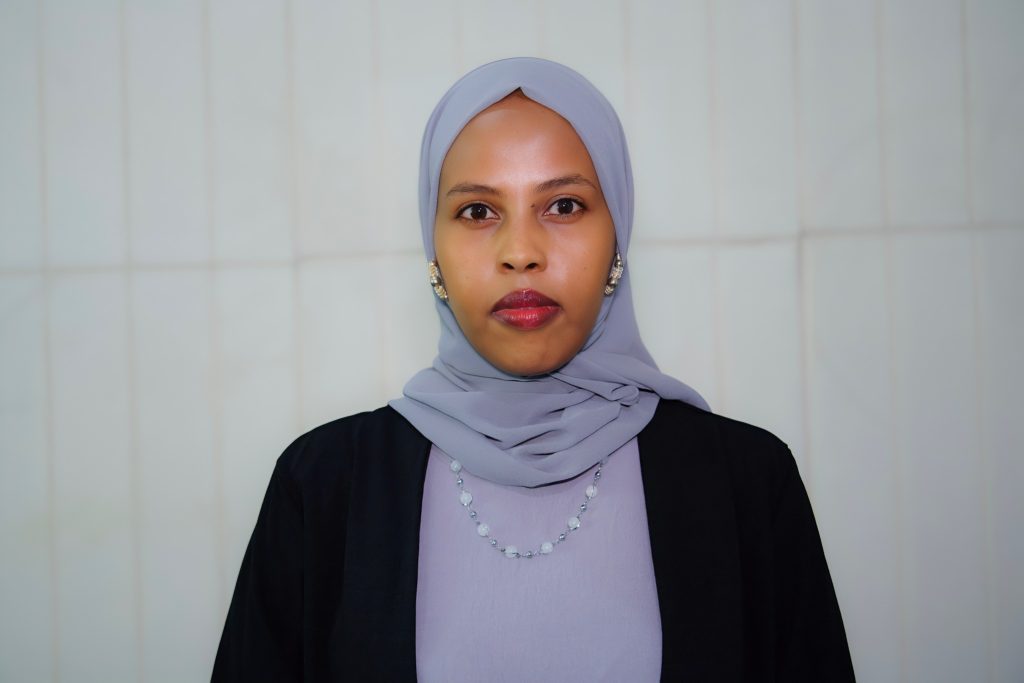
“As a journalist and the chief editor of Bilan Media, the only all-women newsroom in Somalia, I know that press freedom isn’t just important – it’s essential to our survival and our work. In a place where speaking the truth can be dangerous, where women’s voices have long been silenced or sidelined, press freedom is the tool that allows us to challenge injustice, elevate unheard stories, and advocate for real change.
That’s why organisations like Index on Censorship are so vital. They support journalists who risk their safety to ensure the truth is told. They defend journalists’ right to report and protect the public’s right to know.”
TURKEY
Nedim Türfent, journalist
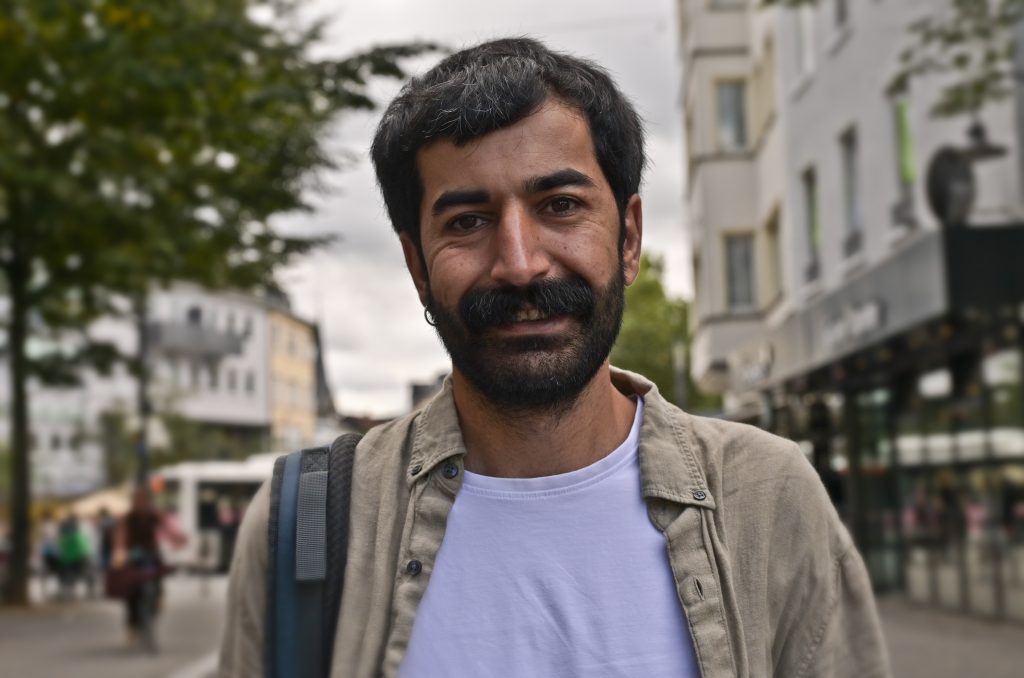
“Freedom of the press is, above all, the first bastion we must defend for the sake of all our other rights and freedoms. Ultimately, in a time and place where the press is not free, it becomes impossible to make our demands for rights visible, known, and heard. If we do not want our rights and freedoms to be dismantled piece by piece, we must be unwavering defenders of press freedom.
The fight for press freedom by international organisations is essential to ensure that the voices of journalists and media outlets facing oppression and persecution anywhere in the world are heard. This cross-border struggle also serves to prevent enemies of press freedom from casually and effortlessly exerting pressure on journalists – as if it were something ordinary. The louder and stronger the voice of international institutions, the more hesitation those enemies will have before violating the rights of journalists.
However, the heavy burden of this struggle should not rest solely on the shoulders of journalists and media organisations. We must remember: when the rights of even a single journalist are violated, the right of thousands of people to access information is also restricted. Shortly, in a world where press and freedom of expression are increasingly eroded, none of our rights or freedoms can be truly guaranteed. It’s that simple.”
AFGHANISTAN
Spozhmai Maani, journalist
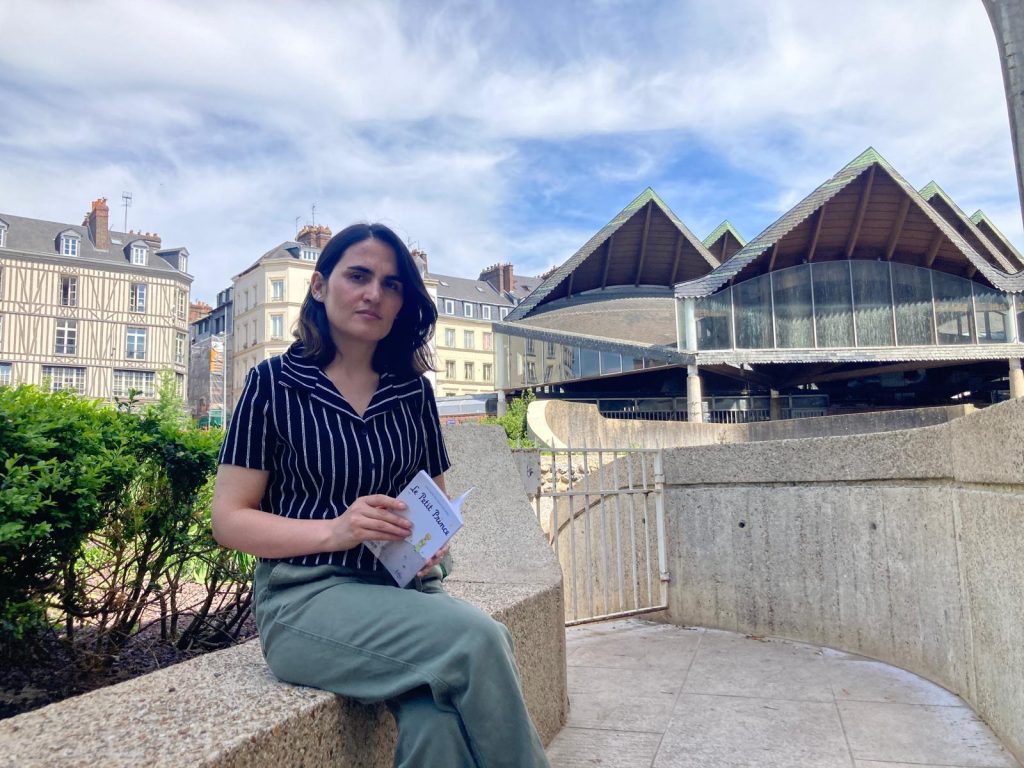
“For me, press freedom is not just a principle, it is a lifeline for truth and justice, especially in places like Afghanistan where silence is often enforced with fear. As a journalist who fled persecution for simply telling the truth, I know firsthand how critical it is to protect the voices that hold power to account. Organisations like Index on Censorship are essential in this fight. They give strength, visibility, and protection to those of us who risk everything to speak out. In a world where even established democracies are seeing press freedom eroded, their work is more urgent than ever.”
INDIA
Salil Tripathi, contributing editor at Index on Censorship
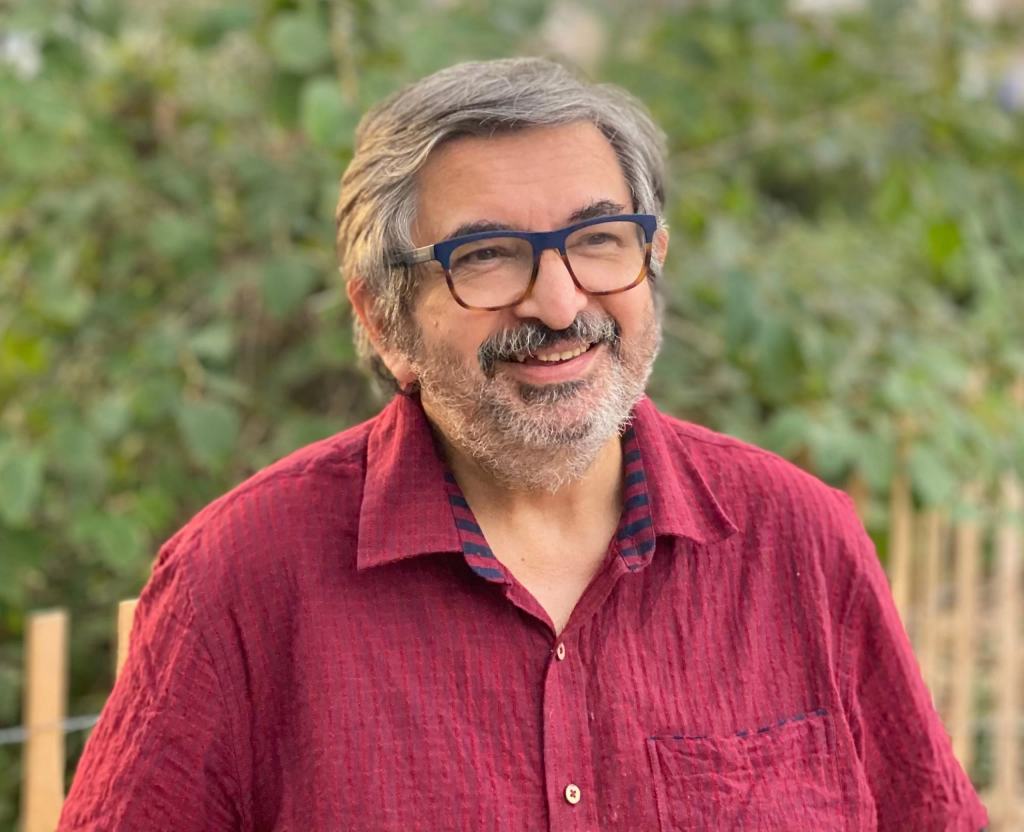
“We only have to look at closed societies from our past and present to know what life is like without press freedom. That some leaders and many people continue to believe in controlling the press – through laws, oligarchs, governments, and intimidation – shows what they are afraid of, and it shows why publications like Index on Censorship continue to matter.”
UGANDA
Danson Kahyana, contributing editor at Index on Censorship
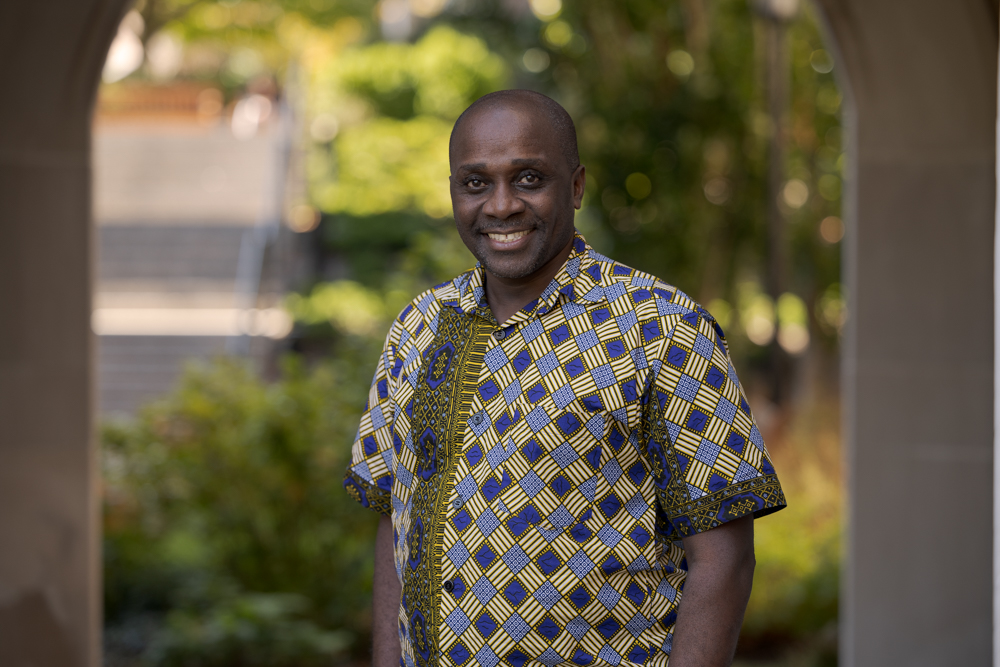
“Press freedom is the foundation of democracy – the press should be able to report on any matter of public importance without fear or favour. The moment press freedom is threatened, expect democracy to rot and die from within because nobody will be able to say, ‘Look – the emperor is naked!’ So nakedness (corruption, impunity, heavy-handedness, tyranny, etc.) will go unreported, thereby weakening institutions into comatose. In Uganda, we have seen this happen: The emperor called General Yoweri Museveni has gotten worse every year that passes. The more power he amasses by weakening institutions like the parliament and the judiciary the more naked he gets. It is because Ugandans have reported on his myriad abuses of power that the world has come to know that all along, he was a tyrant in democracy’s skin.
Because authoritarian regimes wield immense resources to punish critics as a means of stifling dissent, we need organisations like Index on Censorship to shine a light on tyrants’ assaults on freedom. Like witches and wizards, tyrants do their evil work in the safety of the dark. Index and other organisations like it remind the tyrants that someone is watching them, and that sooner than later, they will be held accountable for their misdeeds. In other words, Index and other organisations like it provide an archive of the tyrants’ atrocities that will be used against them in the courts of law. What is happening to former Philippines President Rodrigo Duterte is a good example – the reports against him caught up with him. Besides, by providing constant companionship and solidarity to journalists, Index and other organisations like it embolden the defenders of good governance and human rights in their castigation of impunity.”
BELARUS
Jana Paliashchuk, researcher

“While press freedom is a basic right in many countries, for millions of Belarusians it’s been denied for three decades under Aliaksandr Lukashenka’s dictatorship. Speaking out against repression often leads to prison – and journalists are hit hardest.
Today, 40 media workers are behind bars in Belarus for simply doing their jobs. Journalists like RFE/RL’s Ihar Losik and Belsat TV’s Katsiaryna Andreyeva. are serving harsh sentences and enduring torture behind bars. Other journalists were forced into exile, continuing their work from abroad, while Belarusians inside the country risk punishment just for reading independent news.
This may sound grim, but it’s the reality in Belarus, a European country. That’s why defending press freedom matters. It may seem like a solid foundation of society, but it’s as fragile as glass.”
1 May 2025 | Europe and Central Asia, News and features, Turkey
In the 2024 World Press Freedom Index published by Reporters Without Borders, Turkey ranked 158th among 180 countries. Just days before the release of this year’s index, 37 journalists remain imprisoned in the country, according to the Media and Law Studies Association (MLSA), an NGO defending freedom of the press in Turkey.
However, evaluating violations of freedom of thought and press solely based on the number of jailed journalists would be insufficient, as pressure on journalism intensifies daily in a number of ways.
Even though the first four months of the year are not yet over, 60 journalists have been detained so far. Among them, 25 have been arrested. These numbers are according to monthly reports from the Kurdish journalist organisation Dicle Firat Journalist Union (DFG). One of those arrested was Joakim Medin, a reporter for Swedish newspaper Dagens ETC.
On 27 March, Medin was taken into custody on charges of “membership in an armed terrorist organisation” and “insulting the president”, and just one day later, he found himself in a Turkish prison cell. On Wednesday this week, he was given an 11-month suspended sentence for “insulting the president”, and remains behind bars while he awaits a trial on the second charge. Additionally, three foreign journalists who entered Turkey for reporting purposes have been deported this year alone, according to DFG.
For some journalists, the repressions have been fatal. Within the first two months of the year, Kurdish journalists Aziz Köylüoğlu and Egît Roj were killed in Turkish drone strikes targeting Syria’s autonomous Rojava region – controlled by the Syrian Democratic Forces (SDF) – and Iraq’s Kurdistan region. Over the past 10 months, seven Kurdish journalists have been killed in Turkish airstrikes (some confirmed, some suspected). Despite the gravity of these killings, the international media have largely ignored what human rights organisations have described as war crimes.
Another journalist arrested this year is Yıldız Tar, editor-in-chief of KaosGL.org, known for reporting on violations against the LGBTQ+ community. Detained in Istanbul on 21 February, Tar spoke to Index on Censorship from prison, via his lawyer.
Tar said that the judiciary is criminalising journalistic work, and that interviews with women’s rights defenders and LGBTQ+ activists are treated as criminal evidence.
“For a long time now, the judiciary has failed to define journalism as an activity tied to the public’s right to be informed,” Tar wrote to Index. “Instead, it is framed within a security-focused paradigm. Unfortunately, we cannot talk about an independent judiciary in Turkey. The political power’s anti-LGBTI+ stance also influences the judiciary.”
With World Press Freedom Day in mind, Tar said: “We have no choice but to defend journalism. Journalism is not only journalists’ concern. When we are imprisoned, both the public’s right to information and our mission to be the voice of the voiceless are violated. The oppression and injustices remain unheard. All institutions must act accordingly to this reality.”
Beyond the record number of imprisoned journalists, detentions have become almost systematic in Turkey. Many detained journalists are released under judicial control measures such as regular reporting to the police, travel bans or house arrest. These increasingly common practices not only function as punitive measures but also significantly hinder journalistic work. Measures that should be exceptional have become the norm. For example, a single social media post may result in house arrest, and criticising the government might be enough to trigger a travel ban.
One of the many journalists who has been detained multiple times is Kurdish reporter Erdoğan Alayumat. With several lawsuits and investigations pending, Alayumat is under judicial control and must go to the police headquarters to give his signature weekly in Istanbul.
Speaking to Index, Alayumat said: “If you’re Kurdish and critical, journalism in Turkey becomes nearly impossible. I was arrested in 2017 and spent one year in prison. I was acquitted of all charges. Then, I was arrested again last year and later released. How easy do you think it is to work under the shadow of ongoing trials and investigations?”
Alayumat explained that judicial control functions as punishment, even without a trial.
“Living under judicial control is very difficult. Dozens of journalists are in prison, but hundreds more are forced to live under such restrictions. I couldn’t leave Istanbul for a long time because I wasn’t allowed to leave the city. This made it impossible to do my job. I also have a travel ban, and no one knows when it will be lifted. Going to the police station every week is exhausting – especially when you have to face the same officers who raided your home and detained you violently,” he said.
He added that this situation has had a severe psychological and economic toll and that journalists in Turkey continue their work at a great cost.
Last year, 36 journalists were sentenced and 53 acquitted in Turkey, and these trials resulted in nearly 100 years of cumulative prison sentences.
In addition to grotesque judicial repression, journalists in Turkey also face police violence. Especially during street protests and public demonstrations, journalists documenting police aggression often become victims of it themselves.
Following the arrest of Istanbul Metropolitan mayor Ekrem İmamoğlu in March, several journalists covering mass protests in Istanbul were injured due to police violence. One of them was İlke TV reporter Eylül Deniz Yaşar.
Speaking to Index, Yaşar recounted both her own and her colleagues’ experiences of police brutality.
“While documenting the police’s disproportionate response to protesters, we were physically assaulted. One officer sprayed tear gas directly into my eye at close range. I couldn’t open my eye for half an hour, and my vision remained blurry for hours. I feared permanent damage. Another journalist’s nose was broken. Someone else suffered head trauma. I’m not even counting verbal abuse and harassment,” she said.
She believes the police are now trying to build a “new press regime” in Turkey.
“Police are becoming the architects of this regime. They want to decide where, what and how we film. It’s getting harder to go out in the field,” she said. “I’m one of many journalists frequently detained. My home has been raided twice – home raids have become routine.”
Yaşar added that the repression journalists face in Turkey reminds them of “World War documentaries”.
“Like the terrifying scenes from those times. It feels like we’re living in a dystopian horror film,” she explained.
As Erdoğan’s regime seeks to suffocate journalism with both judicial stick and police baton, critical journalists in Turkey continue to resist – armed with the power of the camera and the pen, at great personal sacrifice.






